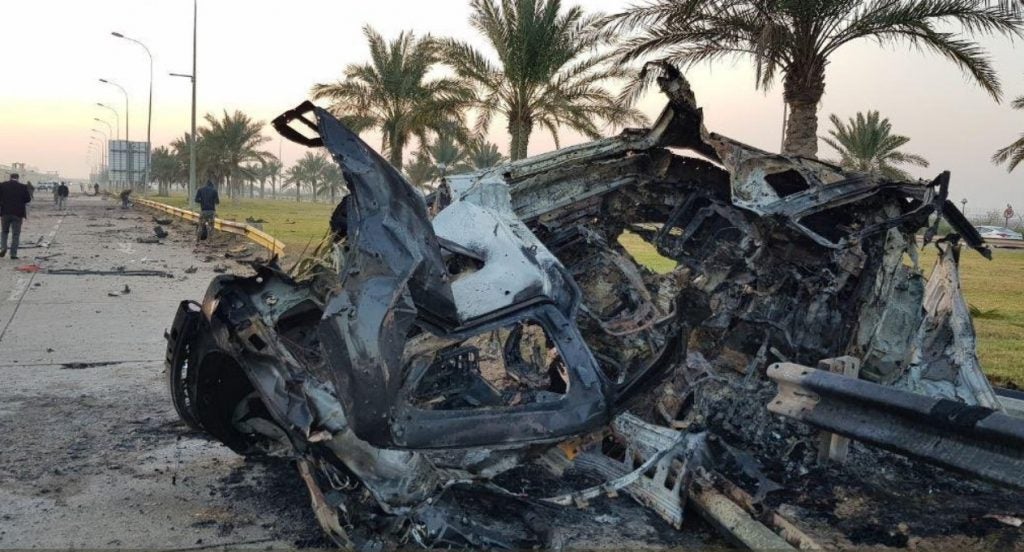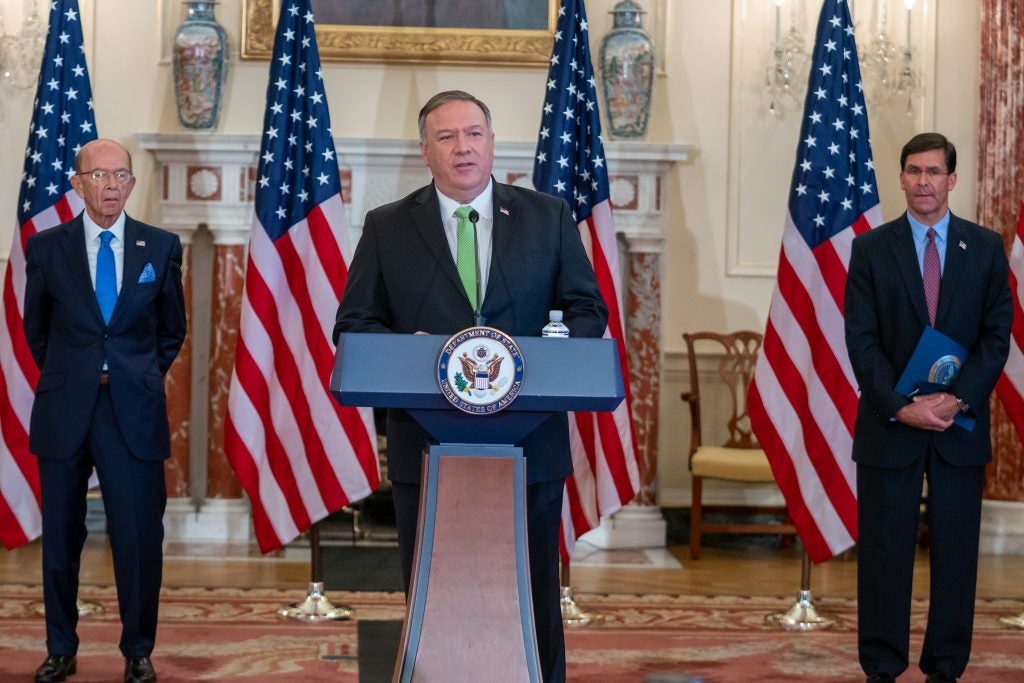US Goes It Alone Imposing New Sanctions on Iran
The US State Department announced on Monday that it was imposing new sanctions on Iran, even as British, French and German foreign ministries questioned US authority to reimpose UN sanctions under the “snapback” provisions of the Joint Comprehensive Plan of Action (JCPOA).
The sanctions announced are:
- President Trump has issued a new Executive Order targeting “Iran-related conventional arms transfers”
- The State Department has designated Iran’s Ministry of Defense and Armed Forces Logistics (MODAFL), Iran’s Defense Industries Organization (DIO), DIO director Mehrdad Akhlaghi-Ketabchi and Venuzuelan President Nicolas Maduro as sanctioned entities or individuals in accordance with the aforementioned Executive Order
- The State Department and Treasury Department have designated six individuals and three entities associated with the Atomic Energy Organization of Iran (AEOI) pursuant to Executive Order 13382 (WMD Proliferators and Their Supporters)
- Five individuals affiliated to the AEOI have been added to the Commerce Department’s Entity List, subjecting them to export control restrictions
- The Department of Treasury has designated three individuals and four entities associated with the Shahid Hemmat Industrial Group, Iran’s liquid propellant ballistic missile organization, in accordance with Executive Order 13382. Two SHIG-associated individuals previously designated have had their sanctions listing updated as well
The State Department said that the imposition of the sanctions showed that the US would “not hesitate to counter the Iranian nuclear, missile, and conventional arms threats” that led to the original imposition of UN sanctions in 2007, claiming that the sanctions were effectively a reimposition of those sanctions.
Monday’s announcement followed a previous State Department statement on September 19, claiming that the “snapback” measures in the JCPOA, or more commonly known as the “Iran deal” that would reimpose the UN sanctions on Iran were now in effect, following the US declaration to the President of the UN Security Council on 20 August, that Iran was in “significant non-performance of its JCPOA commitments”.
The foreign ministries of the United Kingdom, France and Germany released a statement on 20 September stating that the US reimposition of sanctions was “incapable of having any legal effect”, owing to the withdrawal of the US from the JCPOA on 8 May 2018. Additionally, United Nations Secretary-General Antonio Guterres said on 19 September that he could not take any action to reimpose UN sanctions due to “uncertainty” on the status of the sanctions.

Despite the uncertainty around the sanctions, the value of the Iranian Rial dropped even further in response to the news, hitting 272,500 rials to one dollar on Sunday, continuing a trend that has seen its value drop by around 50% over the course of this year. The Iranian government has had mixed reactions, with foreign minister Javad Zarif describing the US moves as “nothing new” at a video appearance at a virtual meeting of the U.S. Council on Foreign Relations, instead offering the exchange of US prisoners detained in Iran. The Islamic Revolutionary Guard Corps took a harder line, with Commander Hossein Salami vowing on Sunday to “hit” all involved in the killing of the previous IRGC Qods Force leader Qasem Soleimani. Similarly, Hossein Shariatmadari, a representative of Iran’s Supreme Leader Ayatollah Ali Khamenei for the state-run Kayhan newspaper and its editor-in-chief, wrote on Sunday that President Trump would be a target for the IRGC for the rest of his life, stating that the IRGC would never stop seeking vengeance for Soleimani’s death.
While the value of threatening the rest of the life of a 74 year old President is rather dubious, it should be noted that US intelligence reports suspect the Iranian government of planning an assasination attempt against the US Ambassador to South Africa. While the Iranian government has denied the accusations, unnamed US intelligence officials claim it is merely one of several retaliatory options considered by Iran after the demise of the man once believed to be the second most powerful person in all of Iran.

